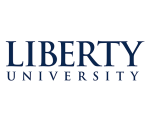Liberty University PHIL 201 Module Week 7 Study Guide Lesson 20 complete solutions answers A+
- From Philosophy, General Philosophy

- Kmgina
- Rating : 186
- Grade : A+
- Questions : 0
- Solutions : 462
- Blog : 1
- Earned : $47433.48

Liberty University PHIL 201 Module Week 7 Study Guide Lesson 20 complete solutions correct answers A+
Study Guide Lesson 19
Study Guide Lesson 21
Study Guide: Lesson 20
Introduction to Ethics
Lesson Overview:
With this lesson, we begin our final unit on ethics. Each of us wonders about right and wrong and how we determine what the morally right action is. We do this on a personal level, but we also ask questions about larger social issues such as capital punishment, war, or abortion. Since this is a survey course in philosophy, we will talk about ethics mostly on a theoretical level and will not be dealing with specific ethical issues. In this first lesson, we want to begin with some introductory issues. In the presentation, we will address the question “Why Be Moral?” and we will see that how we answer that question will set up the rest of our study in ethics. In the reading, we will address the relationship between the Bible and ethics.
Tasks:
View and take notes on the presentation, “Why Be Moral?”
· What is the question really asking?
· What is the difference between motive and justification?
· Explain the 4 elements of the moral point of view.
· What are the 3 general answers to the question?
· What are the 3 elements to every moral event?
· What question are the ethical theories attempting to answer?
Read Chapter 1 of Ethics: Approaching Moral Decisions, “The Moral Revolution.” As you do, consider the following questions and points:
· How have modern times made ethical decision-making difficult?
· According to Holmes, what is the main difference between ethics and other disciplines like sociology and anthropology?
· What are 3 ways the study of ethics can contributes to biblical morality?
· What are the 6 ways the Bible contributes to the study of ethics?
Terms:
Make sure you can explain the following terms and concepts:
· Motive/Justification Distinction
· The Moral Point of View
· The Synderesis Rule
· Ethics
· Normative Judgment
· Consequentialistic Ethics
· Deontological Ethics
· Aretaic Ethics
· Casuistry
· Ethical Theory
· Moral Dilemma
Study Guide: Lesson 19
The Problem of Evil
Lesson Overview:
Throughout the history of religion, the primary and most challenging argument presented against belief in God has been the problem of evil. Many philosophers have concluded that belief in an all-powerful and all-loving God is incompatible with the suffering and evil in the world. If God is good and loving, then he would want to eliminate suffering and evil. If God was all-powerful, then he is able to eliminate suffering and evil. Yet, suffering and evil remain. Therefore, they conclude there must not be a God. In our final lesson of this unit, we turn to this challenging problem of evil. We begin by looking at the different types of evil. We then look at the 2 versions of the problem in detail and offer some responses to them. We continue with a discussion of horrendous evils and the problem of hell. Finally, we discuss the issue of divine hiddenness.
Tasks:
View and take notes of the presentation, “The Problem of Evil.”
· What is evil? (a working definition)
· Why is evil a problem for theists?
· What are some proposed solutions to the problem?
· What is gratuitous evil and how do theists answer that?
Read Chapter 7 of Philosophy of Religion: Thanking about Faith, “The Problem of Evil.” As you read, make sure you understand and can answer the following points and questions:
· Explain the distinction between moral and natural (or nonmoral) evil.
· Explain the distinction between the logical form of the problem and the evidential form.
· Explain the difference between a theodicy and a defense.
· What are 2 inadequate ways of resolving the problem?
· What is Mackie’s form of the logical problem of evil?
· Explain the “greater good” response to Mackie’s argument.
· Explain the “logically impossible” response to the criticism of the “greater good” argument.
· How does the existence of certain “second-order goods” require the possibility of evil?
· What is the soul-making theodicy and what are some problems with it?
· How does the free-will theodicy support the soul-making theodicy?
· Explain Mackie’s objection that God could have created a world where creatures freely choose to always do good.
· Explain Plantinga’s libertarian free will response to Mackie’s objection.
· How is Plantinga’s argument a defense and not a theodicy?
· Explain the 3 ways a free-will theodicy can account for natural evil.
· Explain why a defense is all one needs to defeat the logical form of the problem of evil.
· Contrast the logical form of the problem with the evidential form of the problem—what is the difference?
· Explain the evidential problem in terms of pointless evil.
· How does CORNEA (aka the cognitive limitation defense) address the evidential problem?
· How does one’s belief in the existence of a benevolent and loving God answer the evidential problem?
· Explain the balance between faith and reason in applying the GE Moore shift to the evidential problem.
· Explain Adams’s theodicy concerning horrendous evils, why it requires an afterlife to work, and specifically why it requires universalism.
· Why is hell a problem?
· Explain the annihilation solution to the problem of hell and possible problems with it.
· Explain the mild-hell solution and how it is a version of the free will theodicy.
· What is the main criticism of the “free will” aspect of the mild-hell solution and how do supporters of the solution respond to the criticism?
· What is the problem of divine hiddenness and how is it an argument for atheism?
· What are 2 solutions to the problem of divine hiddenness?
Terms:
Make sure you fully understand the following terms and concepts:
· Moral evil
· Natural evil
· Logical form of the problem
· Evidential form of the problem
· Theodicy
· Defense
· The Greater-Good Response
· The Logically Impossible Response
· Second-Order Good
· Soul-Making Theodicy
· Free Will Theodicy
· Transworld depravity
· CORNEA
· The Cognitive Limitation Defense
· G.E. Moore shift
· Horrendous Evils
· Universalism
· Annihilationism
· The “mild hell” solution
· Divine Hiddenness
Study Guide: Lesson 21
The Challenge to Traditional Ethics: Cultural Relativism and Emotivism
Lesson Overview:
Before looking at the 3 major ethical theories, we should first explore and critique 2 challenges to traditional morality. The first of these is cultural relativism, which says that moral rules or norms vary from society to society. Therefore, whether a particular act is right or wrong depends on the society to which we are applying the rule. The second challenge is emotivism, which argues that moral claims don’t have any cognitive meaning at all. Instead, they are merely expressions of our feelings. We will examine both of these challenges, showing that they have severe problems of their own and should be rejected.
Tasks:
Read Chapters 2 and 3 of Ethics: Approaching Moral Decisions, “Cultural Relativism” and “Emotivist Ethics.” As you do, consider the following questions and points:
· Two implications of the Sumner quote.
· The distinction between descriptive and normative statements.
· Problems with the diversity thesis.
· Problems with the dependency thesis.
· Problems with ethnocentrism.
· Holmes’s normative view.
· The distinction between emotivism and ethical subjectivism.
· Explain the 2 philosophical movements that led to emotivism.
· Stevenson’s theory of the relation between facts and attitudes as a defense for emotivism.
· Holmes’s 3 criticisms of emotivism.
Terms:
Make sure you fully understand the following terms and concepts:
· Cultural Relativism
· Diversity Thesis
· Dependency Thesis
· Ethnocentrism
· Emotivism
· Ethical Subjectivism
· Ethical Intuitionism
· Logical Positivism
· Cognitive
· Non-Cognitive
[Solved] Liberty University PHIL 201 Module Week 7 Study Guide Lesson 20 complete solutions answers A+
- This solution is not purchased yet.
- Submitted On 14 Oct, 2016 08:52:05

- Kmgina
- Rating : 186
- Grade : A+
- Questions : 0
- Solutions : 462
- Blog : 1
- Earned : $47433.48


Liberty University ENGL 101 Mindtap 6 assignment complete solutions correct answers updated

Liberty University ENGL 101 Mindtap 2 assignment complete solutions correct answers updated

BUSI 330 Quiz 7 Liberty University Complete Answers

ECON 213 Problem Set ch. 9 Liberty University Complete Answers

ECON 213 InQuizitive ch. 13 Liberty University Complete Answers
The benefits of buying study notes from CourseMerits

Assurance Of Timely Delivery
We value your patience, and to ensure you always receive your homework help within the promised time, our dedicated team of tutors begins their work as soon as the request arrives.
Best Price In The Market
All the services that are available on our page cost only a nominal amount of money. In fact, the prices are lower than the industry standards. You can always expect value for money from us.


